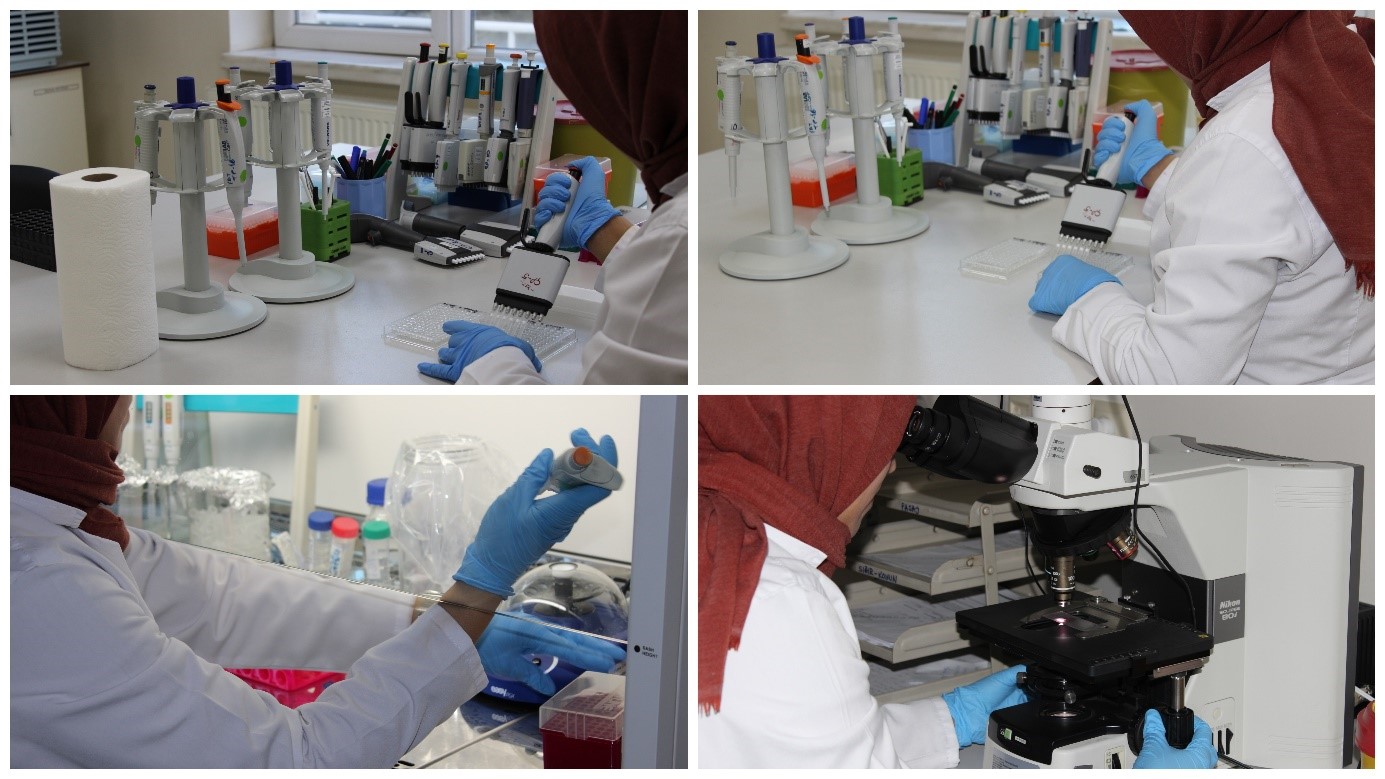
In this laboratory, abortions occurring in farm animals are examined bacteriologically and serologically, as well as bacterial factors that cause important genital infections such as venereal Campylobacteriosis and Contagious Equine Metritis (CEM). Bacterial microorganisims are examined conventional and serologically in cattle, sheep, goats and equids. This laboratory's duties;
• Bacteriological examination of waste materials in terms of Brucellosis, Campylobacteriosis and Salmonellosis,
• Bacteriological examination of horse genital swabs for Taylorella equigenitalis, Klebsiella pneumonia and Pseudomonas aeruginosa,
• Microbiological examination of bull prepuce washes and cow vaginal washes for Bovine Venereal Campylobacteriosis,
• Antibodies against Brucellosis in cattle, sheep, goat and human blood serum; Serological examination with Rose Bengal Plate, Serum Tube Agglutination and Complement Fixation tests,
• Serological detection of antibodies against Salmonellosis in horse, cattle, sheep and goat blood serum by Tube Agglutination Test,
• Detection of genetic materials of Chlamydia abortus and Coxiella burnet bacteria in tissues, organs and genital swabs of Cattle, Sheep and Goats by Real-Time PCR method.
In order to ensure quality control of the analyses, laboratory participates in proficiency tests at the standards determined by the Turkish Accreditation Agency. You can access the current analysis list that we are accredited from this link; https://portal.turkak.org.tr/tr/accreditation/accreditation-certificate/search/46b19048-0ac6-4da1-9fc3-41981225b27f
Breeding Diseases Laboratory is a national reference for Bovine Venereal Campylobacteriosis and Contagious Equine Metritis (CEM) diseases.
• Providing technical assistance and presenting scientific opinions to the competent authority and international institutions and organizations on issues related to the health of wild animals,
• To cooperate with relevant institutions and organizations in order to inform the public on the issues related to wildlife, and to prepare and keep an informative website up to date,
• To investigate the situation of infectious diseases seen in domestic animals and humans in wildlife and to provide information to relevant institutions and organizations,
• To carry out regional, national or international training programs on zoonotic diseases and infectious diseases for people who are interaction with wildlife,
• To be in regular open dialogue with institutions or organizations working on wildlife (Veterinary Control Institutes, wild animal rehabilitation centers, zoos, faculties, municipalities, associations, federations, etc.) and to organize research, projects and training programs in cooperation,
• To carry out serosurvey or monitoring studies on disease conditions in wild animals in national and international studies on disease eradication,
• To carry out research projects by collaborating with national or international institutions and organizations,
• To carry out joint studies with zoos on issues related to animal health,
• To ensure that the work to be carried out is carried out within the framework of the Bern Convention, CITES rules and all relevant legislation,